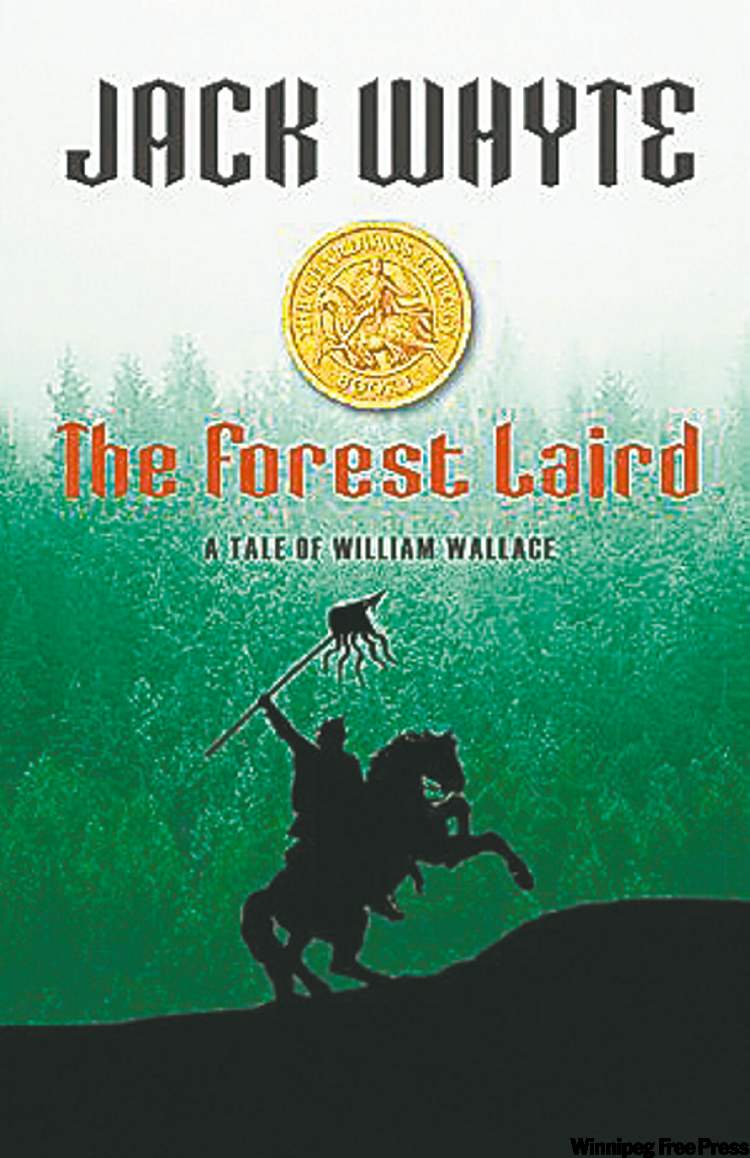Reality focus goes awry in Wallace tale
Advertisement
Read this article for free:
or
Already have an account? Log in here »
To continue reading, please subscribe:
Monthly Digital Subscription
$1 per week for 24 weeks*
- Enjoy unlimited reading on winnipegfreepress.com
- Read the E-Edition, our digital replica newspaper
- Access News Break, our award-winning app
- Play interactive puzzles
*Billed as $4.00 plus GST every four weeks. After 24 weeks, price increases to the regular rate of $19.00 plus GST every four weeks. Offer available to new and qualified returning subscribers only. Cancel any time.
Monthly Digital Subscription
$4.75/week*
- Enjoy unlimited reading on winnipegfreepress.com
- Read the E-Edition, our digital replica newspaper
- Access News Break, our award-winning app
- Play interactive puzzles
*Billed as $19 plus GST every four weeks. Cancel any time.
To continue reading, please subscribe:
Add Winnipeg Free Press access to your Brandon Sun subscription for only
$1 for the first 4 weeks*
*$1 will be added to your next bill. After your 4 weeks access is complete your rate will increase by $0.00 a X percent off the regular rate.
Read unlimited articles for free today:
or
Already have an account? Log in here »
Hey there, time traveller!
This article was published 25/09/2010 (5490 days ago), so information in it may no longer be current.
The Forest Laird
A Tale of William Wallace
By Jack Whyte

Viking Canada, 496 Pages, $36
THE history of Scotland’s 14th-century wars of independence are probably most remembered by a North American audience through Mel Gibson’s 1995 epic Braveheart, where the hero William Wallace attempted to find peace for his countrymen and paid for it with his life.
B.C. author Jack Whyte, originally a native of Scotland, wants to capture those moments of strife, honour and warfare through his new Guardians Trilogy — popular fiction centred around three of Scotland’s most notable characters: James “the Black” Douglas, William Wallace, and Robert the Bruce.
The first in the series, The Forest Laird, focuses on William Wallace and the life-changing events that forced him to battle English oppression until his final days when he was executed.
Whyte’s portrayal is so detailed and painstakingly researched it’s almost difficult to call this fiction. A complete departure from the sensationalized version told by Hollywood, Whyte’s tale is serious and reverent.
Told from the point of view of Wallace’s childhood friend and cousin, the priest Jamie Wallace, the tale follows the two men from childhood through the events that would make William Wallace a legend centuries later.
Unfortunately, what starts out as a neatly drawn story about Wallace’s childhood and ascent to manhood becomes bogged down in political rhetoric, moral philosophy and pages of dull conversation about the tedious relationships between the earls, barons and kings of the time.
It’s also hard to decide if having the story told from the third party point of view is successful. At times, Jamie Wallace’s observations of his cousin provide an excellent technique for character development, but at other times, one wonders how much of the action Jamie misses cloistered away with the priests.
Whyte’s prose is punctuated with moments of tension that contrast perfectly with the book’s sombre tone. For example, when William Wallace meets his future wife, Jaime remarks, “William Wallace’s life, and all of Scotland’s destiny, had been changed forever.”
However, as Wallace becomes more entwined in his conflict with the British, the story loses momentum as it becomes too bogged down in the details of history.
Whyte is the author of numerous historical novels including his well-known A Dream of Eagles series, which details the life and times of King Arthur. Although Whyte is known to eschew the mysticism typical of the genre — choosing instead to use historical conditions to explain Arthur’s rise to power, for example — this focus on reality goes awry in The Forest Laird.
Here Whyte’s ability to spin a good tale with at least a touch of humour and drama is significantly absent.
Nisha Tuli is a Winnipeg writer.

